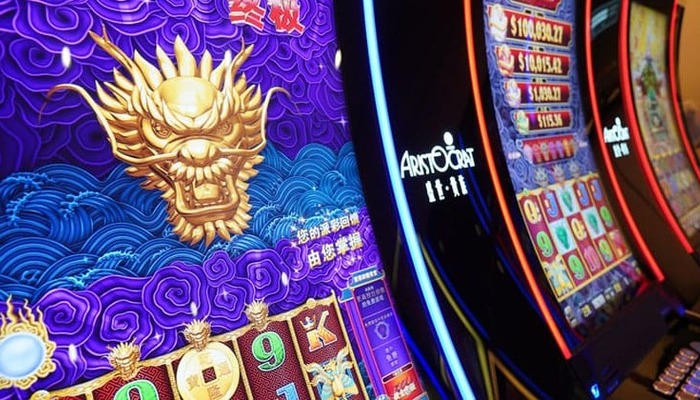
Why do Asian Americans gamble a lot?
Are Asians among the world’s most ardent gamblers? The majority of California’s recreational gamblers are Asian Americans, according to a report by the state’s attorney general titled “Gambling in the Golden State.”
According to the research, Asian Americans made up half of the patrons at one of the well-known tribal casinos near Riverside, California. According to Andrew Pham, who conducted an investigation on Silicon Valley’s metro newspaper, Asians make up between 50 and 80 percent of the patrons at two nearby clubs where cards are played.
In research done in Connecticut, 42% of the Asians surveyed admitted to gambling over the previous 14 days, and 50% had wagered more than $500 over the previous two months.
A group of UC Berkeley grads who worked with the Chinese Health Coalition discovered that about a third of the Chinese population in San Francisco engaged in pathological gambling.
All of the aforementioned research points to the same conclusion: Asian Americans gamble more than Americans of other races.
According to an American study, roughly 1% of adult Americans struggle with compulsive gambling, making it a serious problem. Although exact numbers on the number of Asian Americans who are gambling addicts are unknown, all available research has shown that gambling addiction is a problem in this community.
Several reasons explain why Asian Americans gamble more than other communities in different states.
1. Impact of culture on gambling
Asians of all ages participate in gambling in social gatherings, in their homes, and in casinos. Young Chinese people frequently engage in money gaming with their grandparents, aunts, uncles, and other senior family members.
In order to socialize and generate money, Asian immigrants from their native countries bring their gambling culture to the United States.
The mysterious qualities of fate, luck, and chance in people’s lives are strongly believed by Asians. Chinese people bet during the New Year festivities to banish ill luck from the previous year and bring good fortune in the next year.
Paul Hoang, the founder of the nonprofit Viet C.A.R.E, which addresses mental health concerns in the Vietnamese community, claims that during Lunar Year, gambling among Asian Americans increases dramatically. It’s almost unacceptable to abstain.
Timothy Fong, co-director of the U.C. Los Angeles Gambling Studies Program, ascribed Asian Americans’ liking of gambling to the custom of using it to assess one’s luck.
Asian-American men in New York’s Chinatown used to gamble in basements. They later moved to casinos when Atlantic City emerged in the 1970s and Connecticut gambling premises in the late 1990s. This is according to Paul J. Q. Lee, a long-serving Chinatown community leader and former owner of a bus that used to ferry people to casinos.
2. Low living standards
In search of a better life, some immigrants from China, Korea, the Philippines, Cambodia, and Vietnam travel to the United States. However, most people struggle to find better-paying work due to their limited education and linguistic obstacles.
Most of them are drawn to casinos because of their poor salary and lack of proper education, where they are treated like honored guests. These individuals risk more than they can afford because they believe they are enjoying the “American Dream.” The majority of low-income immigrants from his neighborhood, according to an Asian social worker in San Francisco’s Chinatown, are dazzled by the extravagant lifestyle portrayed by the casinos.
3. Denial and dependence
The American-Asian community’s strong sense of privacy makes it difficult for those who have gambling issues to speak up and get help. Most people prefer not to seek assistance because they are ashamed of it.
Lee, a former gambling addict, attests that during his gaming days, nothing mattered besides gambling. anyone, not even family. The V.I.P. treatment, which included complimentary hotel suites, concert tickets, and managers, was too tempting to pass up. To continue taking advantage of the treatment, he would spend thousands of dollars at the casino.
Lee said he did not admit he was in a gambling mess and saw it fit to gamble as long as the money was available.
Jimmy Wong, a second recovering gambler, recalls being ejected from his brother’s home in his early 20s. The brother was no longer able to keep up with Wong’s gambling menace, who could spend all of his earnings from a job working in a supermarket at the casinos.
“Despite having a job and a regular salary, I struggled to pay for food and transportation and was frequently in debt. I eventually took on a variety of occupations to pay for my gaming, said Wong. “My brother had to pay off two credit cards that I piled up. dad continues, “That’s when dad had enough and instructed me to leave the house.
4. The importance of responsible gambling regulations
Gambling won’t stop happening. No one can forcibly stop people from gambling. Gambling has always existed and will continue to exist, possibly much more so in some societies than others. This does not, however, imply that gambling should be let to carry on ruining people’s lives. What then is the answer?
Since many U.S. states have legalized sports betting and online gambling in recent years—Maryland being the most recent—a strong emphasis is continuously put on developing the best frameworks and procedures to promote, inform, and guarantee that responsible gambling is practiced at all times.
States will have better control over minors participating in internet gambling thanks to legislation, education, strong regulation, and required monitoring. These efforts will help lessen gamblers’ overall propensity for addiction. Greater protection against problem gambling is offered in a regulated setting. In contrast to unregulated sites, regulated sites are required by law to point users toward resources for assistance. When necessary, you should also impose betting caps, ban participants, or conduct screenings for gambling addiction. Not to mention that all players are protected against unlawful betting practices like a fraud that they can be exposed to at offshore gaming sites.
Final
Empirical research demonstrates that problem gambling is a significant problem in the Asian-American population. These societal nuances must be taken into account as more States continue to legalize and regulate internet gaming. State officials must also offer minor communities, which are more vulnerable to problem gambling, the required assistance and support, even though building safe, regulated marketplaces is a critical first step. We can only begin to change the narrative and enhance people’s lives by addressing the problem’s underlying causes.
Other Interesting:
How to Play Indian Gambling Games?
See other website:
Oriental Game
Other Interesting Articles
 AI Stealing Human Jobs: Over 4000 techies lost their jobs to AI in May 2023 alone
AI Stealing Human Jobs: Over 4000 techies lost their jobs to AI in May 2023 aloneJun 9, 2023











